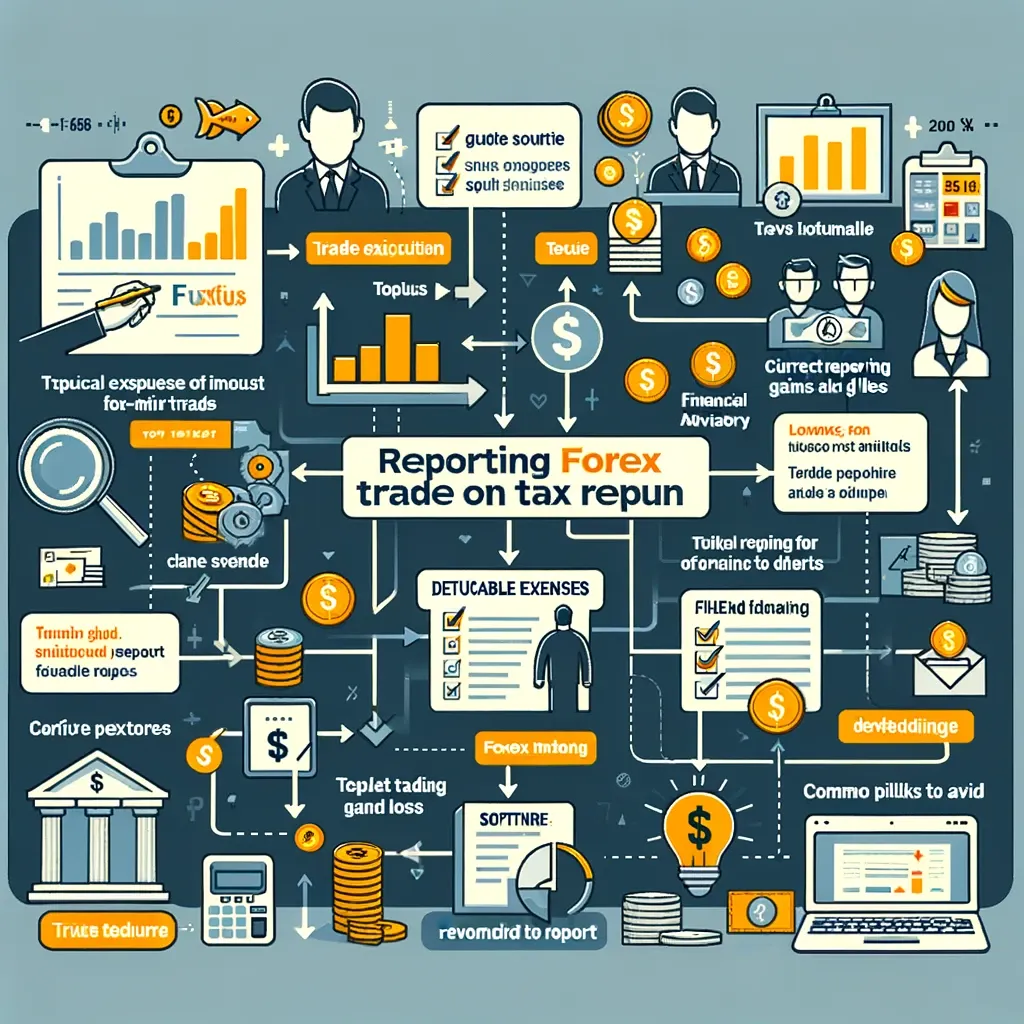Forex Trading Tax Implications: What Every Trader Should Know
Introduction to Forex Trading Taxes
Forex trading can be lucrative, but it’s essential to understand the tax implications that come with it. Depending on your country of residence, the rules can vary significantly, which means keeping abreast of these laws is crucial for every trader.

Key Tax Considerations for Forex Traders
1. Tax Status of Forex Trading
In many countries, forex trading is taxed as capital gains or income tax. The distinction often depends on the nature of trading—whether it's considered speculative or similar to investing.
2. Reporting Trading Gains and Losses
You must report earnings and losses from forex trading when you file your taxes. Proper record-keeping is critical and can be facilitated by software that tracks trades and calculates potential tax obligations.
3. Treatment of Trading Expenses
Many jurisdictions allow traders to deduct expenses related to their trading activities, such as educational resources, trading software, and home office costs. Understanding what expenses are deductible can significantly affect your net taxable trading income.
4. Different Tax Rules Based on Trading Status
The frequency of your trades, strategy, and volume can sometimes influence how your trading income is taxed. High-volume traders are often considered self-employed or professional traders and could be subject to different tax rules.
5. Impact of Leverage on Taxation
Using leverage can complicate how your transactions are taxed. Some countries will consider gains from leveraged trades as different from direct, non-leveraged capital gains. Make sure to understand how leverage reflects in your tax obligations.
6. Forex Options and Futures
Tax rules can also differ for forex options and futures contracts. In some countries, these are treated differently from spot forex trades. It’s important to clarify this with a tax professional to ensure proper reporting and compliance.
How to Manage Forex Trading Taxes Efficiently
- Use Professional Tax Software: Tools designed for traders can automate much of the grunt work in tracking and calculating tax liabilities.
- Consult with a Tax Advisor: Given the complexities of trading taxes, consulting with a professional who understands forex-specific tax laws is advisable.
- Keep Comprehensive Records: Maintain detailed records of all trades, including dates, amounts, profits, losses, and expenses. This documentation will be indispensable if you are audited.
Final Thoughts on Forex Trading Taxes
Taxes needn't be a stumbling block in your trading career if managed wisely. By keeping good records and staying informed about specific forex taxation laws, you can ensure that you remain both profitable and compliant.








